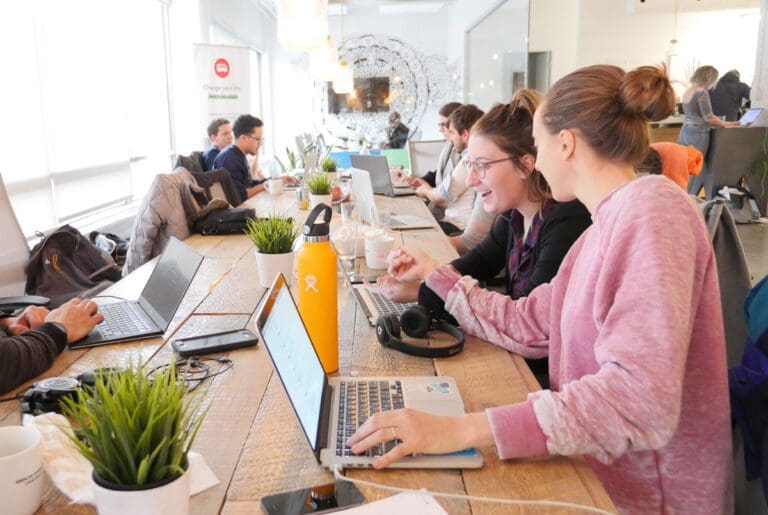A basic appreciation and understanding of how to code will become an essential business skill in the future. So prepare for the future: learn to code.
Long gone are the days of software coding being a niche specialism. It’s a rapidly growing and popular profession. Nowadays, every company is considered a technology company. From the smallest restaurant relying on electronic booking systems and social media for marketing, to large corporations such as Amazon. Every company relies on technology to conduct their day to day operations – “software is eating the world”. That makes software engineering a vital role and it’s never been more important to have these skills and experience. So how do we prepare for the future?
Education is catching on, with the UK curriculum now introducing computer programming in primary school. Initiatives such as Hour of Code, supported by generous donors including Microsoft, Facebook, the Infosys Foundation, Google, Omidyar Network, make learning to code more engaging and accessible and helping inspire a younger generation.
My 9-year-old son is now proficient using Scratch, which helps young people learn to think creatively, reason systematically, and work collaboratively, to program their own interactive stories, games, and animations. It’s a block-based programming language, that helps children learn the logic, even before they learn to type! This has triggered an interest in coding and helped him to start learning more complex languages such as Python. He wants to be a games developer when he grows up and seems well set up to do so!
For those that have the aptitude and are interested is re-skilling, there are many opportunities to retrain. Options include coding bootcamps, online coding classes, or a computer science degree at your local university. There are even courses that you can take your baby along to as well!
My sons’ passion has helped provoke me to try as well. I work in IT Project Management, so I’m familiar with technology and engaging with software engineers, but have never written code. I recently completed a basic HTML5 and CSS3 online course via Codecademy. I was surprised at the high quality of these lessons, how easy they were to use and learn from – especially considering they are free. I can now confidently complete some basic web page editing.
Arguably, the ability to code is a digital skill and a basic ability now considered essential, similar to how using Microsoft Office may have been in the past. However, is it that simple? Does this downplay the dedication and technical skill of a whole profession? Basel Farag at TechCrunch argues that coding is not the new literacy, advising individuals not to learn to code for the sake of it, as it dumbs down the trade, turning coding into a commodity at a time when many developers consider code as craftsmanship. However, he does advocate learning in the right context, ensuring individuals commit to learning to apply the skill properly.
So what does the future hold? With the advent of technologies such as IBM’s BlueMix, (arguably an adult version of Scratch!) and other cloud-based Platform as a Service (Paas) offerings, it has never been easier to get involved in technology.
I believe a basic appreciation and understanding of how to code will become an essential business skill in the future. So prepare for the future: learn to code.

Claire Donald VP of Engineering at Moo








